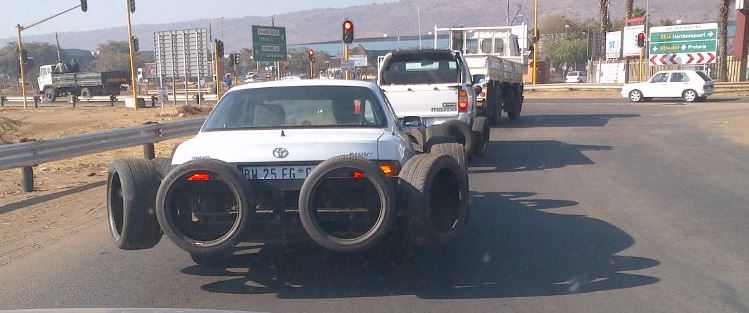Most unfortunately, South Africa has become one of the most dangerous countries in the world for motorists. Let’s find out why.1,2
South Africa scores poorly in a survey1
Recent data show that South Africa obtained poor scores based on motorist non-compliance to wearing seatbelts, adhering to speed limits and not drinking and driving. Data revealed that approximately 57.5% of South African road fatalities were due to alcohol consumption. The South African death rate stands at 22.2 deaths per 100 000 people, with only 31% of front-seat passengers wearing safety belts. Thailand’s roads were the least safe compared to those in South Africa.
A list of the most dangerous countries for drivers2
In decreasing order of severity of road fatalities, are Thailand, South Africa, Malaysia, India, and China. Except for Thailand at 32.7 deaths per 100 000 people, road fatalities in all the other above-mentioned countries are in the twenties per 100 000 people. Compare this to the USA, where the road fatality rate is half of those figures, namely, 12.4 per 100 000 people.
The issue of drinking and driving in more detail2
Although South Africa is still considering implementing a zero-tolerance law on driving under the influence of alcohol, will it make a difference? The reason for this question is because law enforcement appears to be insufficient to deal with this problem. It seems a contradiction, but the USA has a more lenient law towards drinking and driving and yet has a low death rate on their roads.
Which are the safest countries?1,2
Norway, Estonia and Iceland are the least dangerous countries for motorists. Norway only has three deaths per 100 000 people, while 95% of passengers comply by wearing safety belts. Norway’s road fatality rate is almost a tenth of that in South Africa. Japan also scores high in road safety because many passengers choose to wear safety belts.
Law enforcement is the key
What does all this show us? No matter how strict any law may be, it can become meaningless if the necessary enforcement of that law is missing. It’s the same thing with a chaotic family, where enforcement of house rules is absent. Once South African motorists realise that law enforcement agencies mean business and are showing zero tolerance to offenders, we may see a drop in these unnecessary road fatalities.
A culture of defensive driving
Essential is a culture of safe driving. A possible spin-off of effective law enforcement is that a culture of defensive and respectful driving sets in instead of the current irresponsible behaviour by some drivers on our roads.
With South African roads being one of the most dangerous, you can imagine the number of accidents that can and do occur. This means it’s vitally important to protect yourself financially with adequate car insurance, seeing that 70% of all South African motorists have no car insurance.3 If you need more information about affordable car insurance products with unique benefits such as fixed premiums* and a reduce-to-zero excess*, contact PMD. T’s and C’s apply.
Sources:
1https://ewn.co.za/2022/05/11/buckle-up-south-africa-is-the-most-dangerous-country-to-drive-in
3 https://www.news24.com/citypress/business/70-of-south-african-motorists-have-no-insurance-20210702
This article was prepared by Eric Sandmann in his personal capacity. The views and opinions expressed in this article are the author’s own. The views and opinions in the article should not be attributed to anyone but the author unless expressly stated. Nothing in this article should be relied upon as advice, this publication is presented for informational purposes only. No person should act or refrain from acting in reliance on any information found in this article, without first obtaining proper financial advice from the appropriate professional. The author makes no claims, promises or guarantees about the accuracy, or completeness, of any information linked from, referred to, or contained in this article. The author reserves the right, to edit and change the content of this article.
